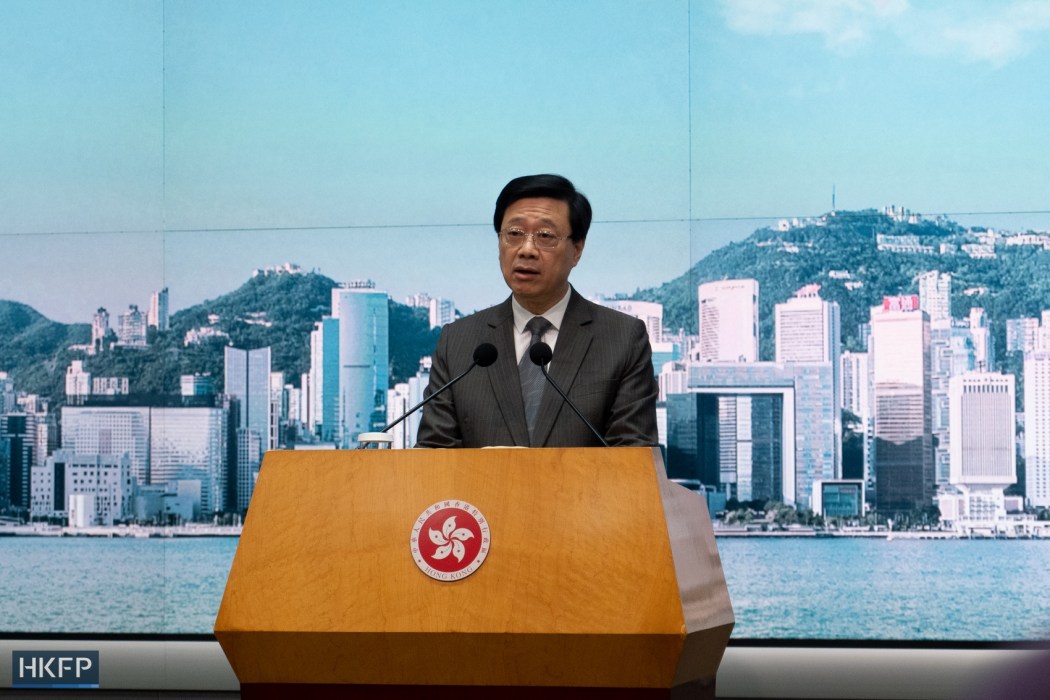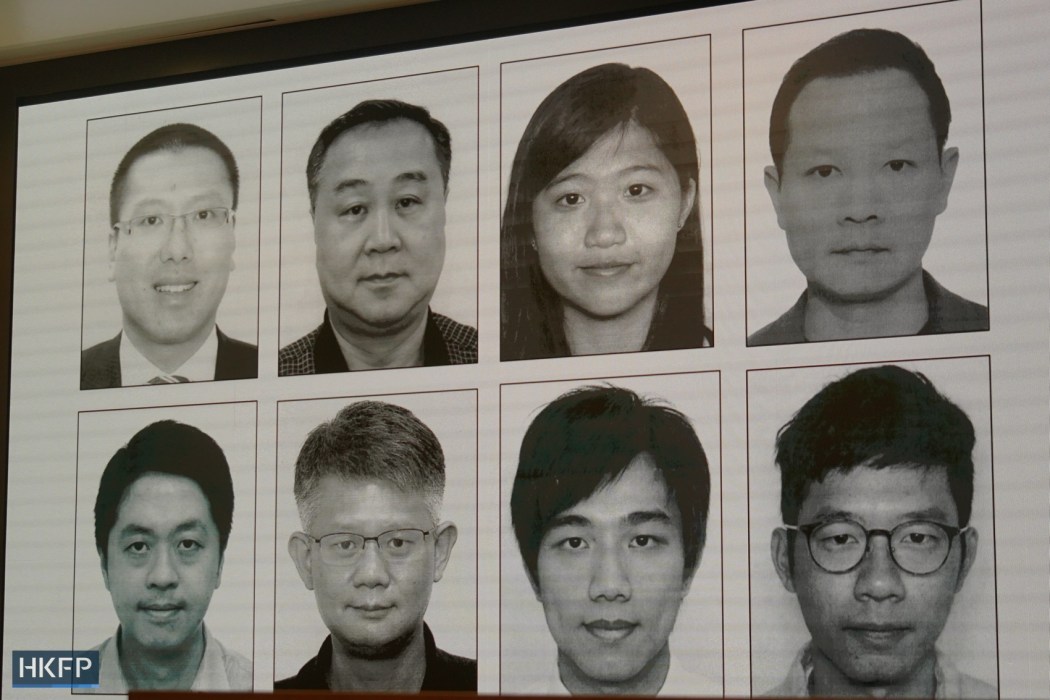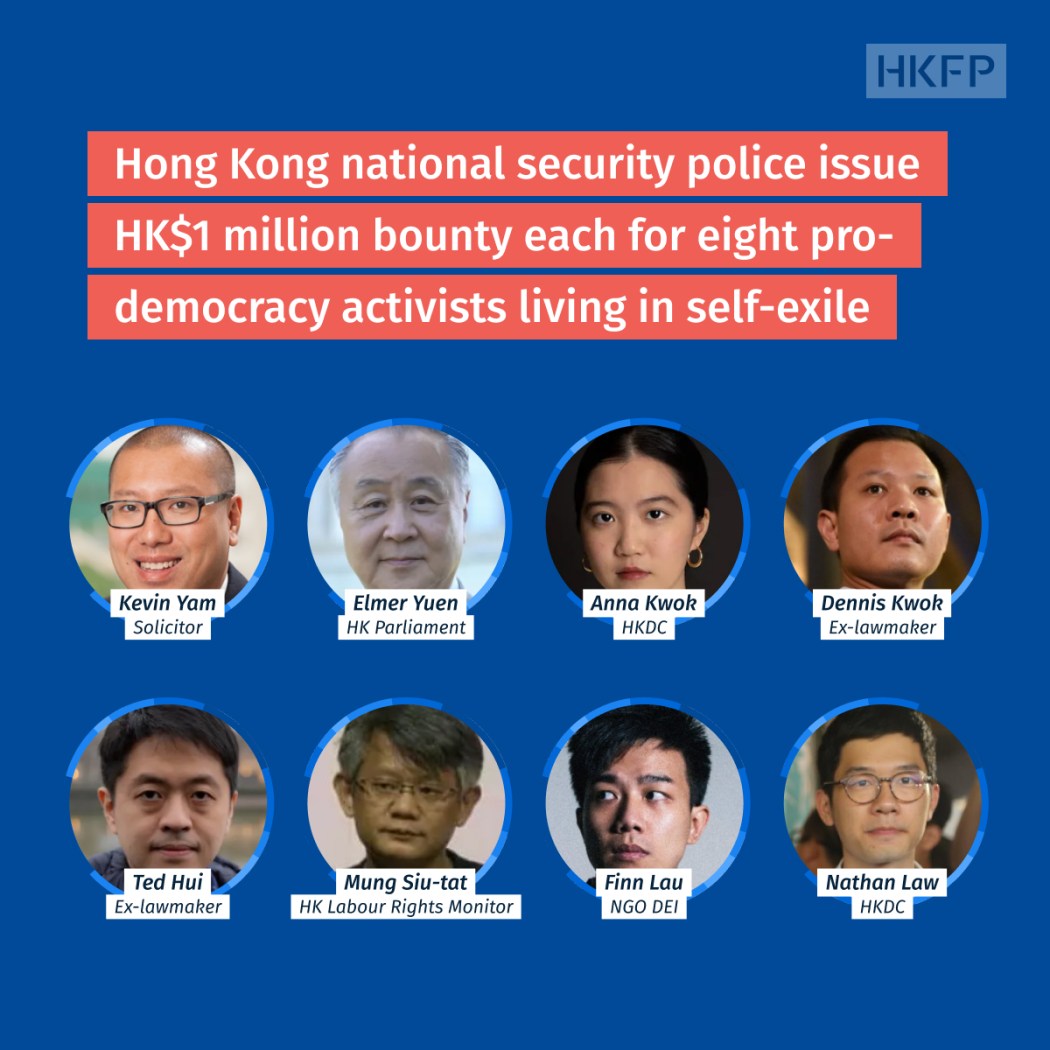The eight overseas democrats wanted by national security police should be treated like “street rats” that people should “avoid at all costs,” Hong Kong Chief Executive John Lee has said.

His comments were in response to Hong Kong national security police issuing arrest warrants for eight self-exiled activists, including former lawmakers Ted Hui and Dennis Kwok, last Monday. Authorities also offered a HK$1 million bounty for each of the wanted people.
Speaking at his weekly press conference on Tuesday, Lee said: “The eight wanted criminals have breached Hong Kong national security law, endangered national security and been involved in serious crimes… As I have said, everyone should treat them as street rats and avoid [them] at all costs.”

He added that the police had “already received some information” about the wanted people, and that authorities would widen the scope of their investigation. They would also look into those supporting the democrats “behind the scenes,” he said.
This was not the first time Lee had referred to the eight democrats as “street rats.” He made the comment twice last Friday while speaking to reporters in the mainland Chinese city of Guiyang, which he was visiting.
Lee also said on Tuesday that the police pursuits for the democrats would be “lifelong” and that authorities would “exhaust all methods” to arrest them.
Letters to foreign media
Meanwhile, Secretary for Security Chris Tang told a foreign media outlet on Monday that he wanted to express “outrage” and “set the record straight” after it published a commentary by Hui, one of the eight wanted democrats.
In his letter to the Wall Street Journal, Tang called Hui a “liar without credibility.”
Hui, who is now based in Australia, wrote in his commentary that the national security law was aimed at abolishing rule of law and free expression in Hong Kong. He added that many in the city had been left “voiceless,” and urged the international community to hold the Hong Kong and Beijing governments accountable.
In response, Tang wrote: “Ted Hui’s opinion piece… is a blatant affront to the Hong Kong Special Administrative Region (HKSAR) and to our country, the People’s Republic of China (PRC).”
It is the second time in less than a week that Tang has written to foreign media outlets over their opinion pieces on the national security police arrest warrants.
Last Wednesday, Tang wrote to Bloomberg and said its opinion piece had attempted to “gloss over the severity of the traumatic black-clad violence in 2019” and undermine the national security law.
Protests erupted in June 2019 over a since-axed extradition bill. They escalated into sometimes violent displays of dissent against police behaviour amid calls for democracy.
Beijing imposed a national security law in Hong Kong in June 2020, criminalising secession, subversion, foreign collusion and terrorism. The move gave police sweeping new powers, alarming democrats, civil society groups and trade partners, as such laws have been used broadly to silence and punish dissidents in China. However, the authorities say it has restored stability and peace to the city.
“No one is above the law, and the Hong Kong Police Force will take all necessary measures
in accordance with the law to bring the persons concerned to justice,” Tang wrote in his letter to the Wall Street Journal.
Support HKFP | Policies & Ethics | Error/typo? | Contact Us | Newsletter | Transparency & Annual Report | Apps
Help safeguard press freedom & keep HKFP free for all readers by supporting our team



























